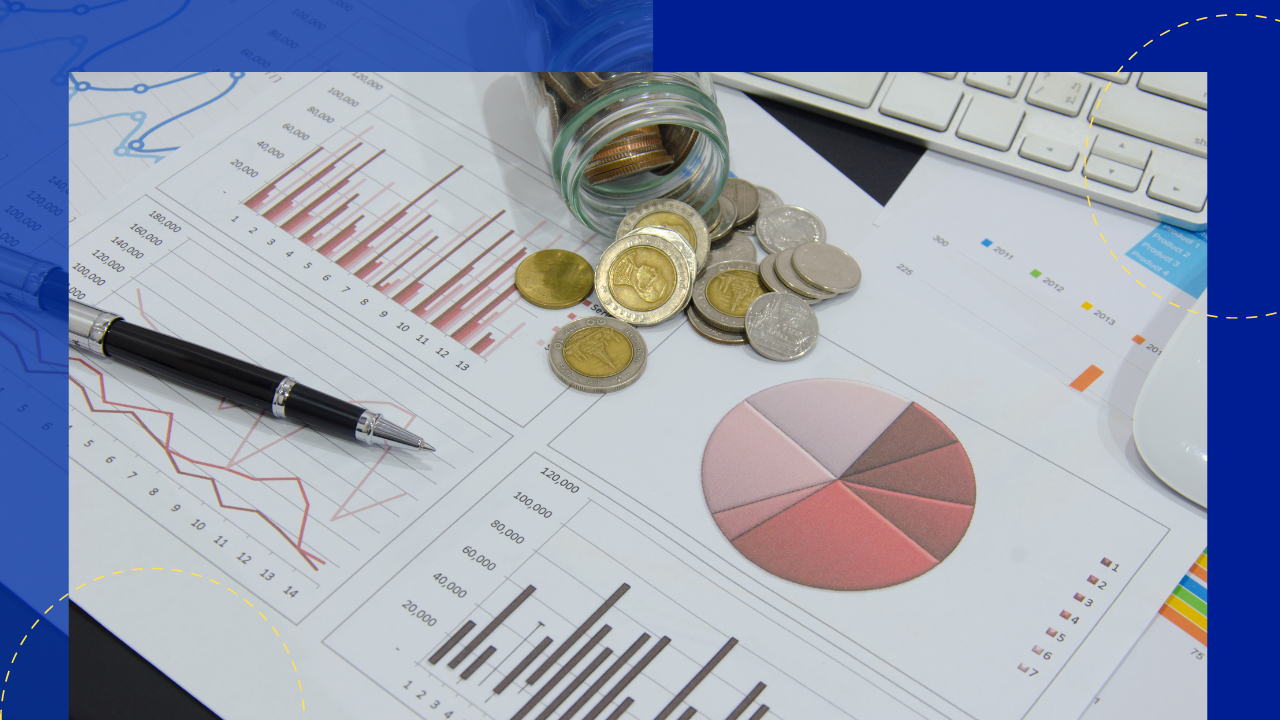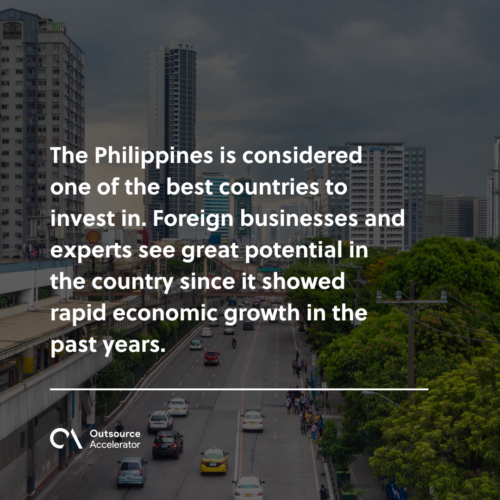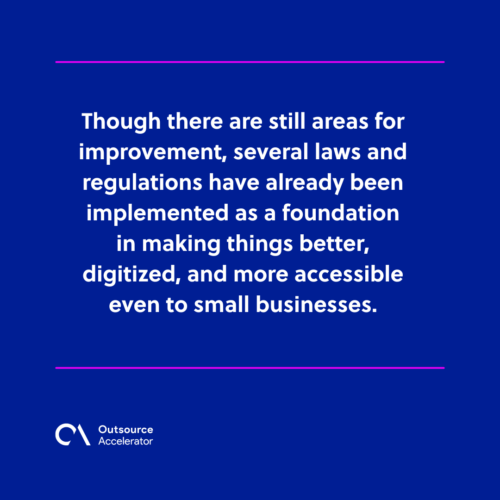What you need to know about investing in the Philippines

Being a developing nation, the Philippines has great potential in accelerating its economy through foreign and local investments. The government, in return, encourages these businesses to thrive and continue to contribute to its emerging economy.
Despite restrictions and potential threats in the country, foreign investments continue to flow at an impressive rate. Goldman Sachs even named it one of the next emerging economies in the world.
But, is it wise to think about investing in the Philippines?
This article tackles the Philippine investment climate, its advantages, and the ways foreigners can invest in the Philippines.
Is the Philippines a good country to invest in?
The Philippines is considered one of the best countries to invest in. Foreign businesses and experts see great potential in the country since it showed rapid economic growth in the past years.
The country was included in the top rankings in a few instances. In 2018, the US News & World Report named the Philippines as the “best country to invest in” while CEO Magazine ranked it seventh out of the top 10 best countries in 2020.
Despite the pandemic which made its rankings slide this year, the country still sees a bright future through the rise of demand in outsourcing and future approved investments in the next few years.
Why invest in the Philippines
Foreign investors may find it discouraging to invest in the Philippines with the slow COVID response and vaccine rollout for its citizens
Yet, the government now makes an effort to fill up the gaps it made during the past year.
It’s still advantageous for businesses to invest in the country for the following reasons:
Strategic location
Located at the heart of Southeast Asia, the Philippines is a welcoming gateway to the region. Foreigners can easily go to several provinces and their neighboring countries in a few hours of transport, making it a critical entry point to the ASEAN Free Trade Area market.

An abundance of resources
The country is also rich in important natural resources that can make its economy sustainable. For instance, the 7,000-island archipelago is covered in bodies of water that are used for fishing and sea trade.
Competitive investment costs
The Philippines has some of the lowest costs in the world, especially in outsourcing.
Its low cost of living affects the workers’ salaries in the country, which can start at around $500 per month or lower for rank-and-file employees.
Generous incentives
In contrast, foreign businesses investing in the country enjoy generous benefits and incentives provided by the government.
In particular, agencies like PEZA were created to provide these incentives and boost foreign investments in the Philippines.
Better investment security
Compared to India, the Philippines is considered to be less risky to investors. This is due to the better savings and incentives they receive than in other countries in Asia.
Overall country’s brand
Most importantly, the Philippines has established its brand to the world: a reliable and leading BPO country with stable infrastructures, low costs, an English-speaking workforce, and a large market of outsourced services.
Investment risks
Despite these advantages, investing in the country also poses several risks that companies should consider.
These risks can affect the way a business works in general but can be worked out to prevent further effects in a company.
Here are some of them:
Geopolitical risks
The Philippines faces several geopolitical issues that can affect foreign investments.
For instance, companies may find it difficult to directly start a business with the red tape that comes along with filing requirements and paperwork in government agencies.
Political instability
Instability in the government can also affect investment in the country. With the clash between political parties, one may tend to reverse or erase a policy that’s been done by the former administration. This could then confuse foreigners doing business there.
Corruption within government agencies can occur as well, in the form of bribing and hiring fixers.
Reliance on foreign investments
The Philippines heavily rely on foreign investments, whether through export trading or business process outsourcing.
Luckily, the country is developing local MSMEs and large enterprises that could help compete with foreign and multinational companies in different regions.
Ease of doing business in the country
The Philippines ranks 95th out of 190 countries in the 2020 World Bank Report on Doing Business. It jumped 29 notches from its former ranking of 124th in 2019.
Doing business in the Philippines in 2021 is a far cry from the process in the country a decade ago. Though there are still areas for improvement, several laws and regulations have already been implemented as a foundation in making things better, digitized, and more accessible even to small businesses.
- EODB Law. In 2018, the Ease of Doing Business and Efficient Government Service Delivery (EODB-EGSD) Act was passed. This aims to increase proficiency in government processes by reducing red tape and curbing corrupt practices.
- TRAIN Law. Known as the Tax Reform for Acceleration and Inclusion Act, the TRAIN Law moved to reduce tax payments and processes for individuals and businesses, whether MSMEs or large enterprises
- CREATE Law. The Comprehensive Recovery and Tax Incentives for Enterprises (CREATE) Law, meanwhile, provides stimulus measures for businesses to recover from the impact of COVID-19.

Investing in the Philippines: Here are ways
Purchasing exchange-traded funds (ETFs)
Exchange-traded funds (ETFs) refer to diversified investment securities that group several assets in one. An ETF investment includes several assets like stocks, bonds, and mutual funds bundled into a single offering in the stock market.
Buying ETFs is the easiest way to invest in the country. Like stocks, ETFs can be bought through a regular broker at a low cost. It offers instant diversification as well to ensure investment security.
Starting a business
Foreigners can also start a business in the Philippines. But, they need to be careful and study which businesses they can fully and partially own.
The Foreign Investments Act (FIA) of 1991 made it possible for foreigners to own a business in the country. They can own up to 100% of a company in different sectors except those indicated in the negative list A and B.
According to the FIA, those included in the negative list A conduct “activities reserved to Filipinos by mandate of the Constitution and specific laws”. Companies in this list include:
- Mass media (except for internet business and recording)
- Small-scale mining
- Security and surveillance agencies
- Retail trade, and
- Practice of professions
In some instances, some sectors in this list allow up to 60% foreign ownership.
FIA negative list B, meanwhile, includes businesses that restrict ownership up to 40% for health, security, and moral reasons. It aims to protect local small and medium scale industries in the country as well.
Business process outsourcing
Lastly, foreigners with existing businesses can always delegate a workload, project, or an entire department by outsourcing it.
Business process outsourcing in the country does not just benefit global investors and organizations. It also helps generate jobs and ensure job security for the Filipinos, helping them to improve their way of living.
Outsourcing in the country has boomed through the decades that the industry has been recognized by the World Trade Organization in its 2019 report.







 Independent
Independent




